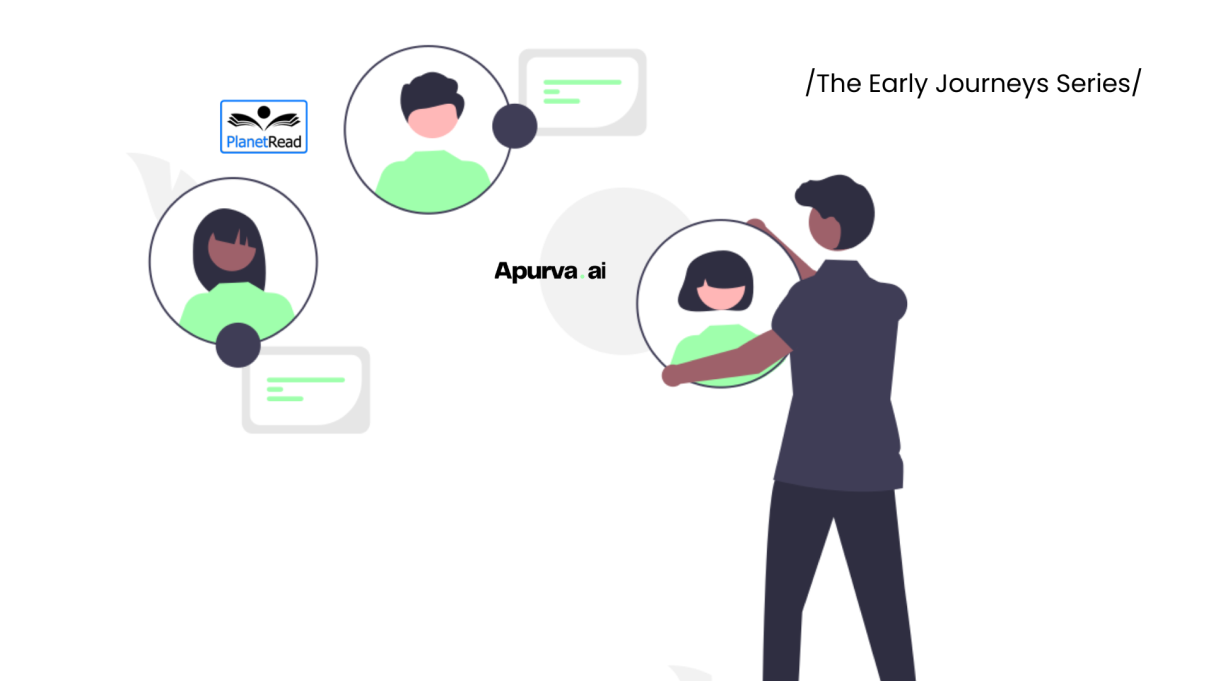BY @ANAGA SIVARAMAKRISHNAN | 5 MIN READ | PUBLISHED ON 1.12.2023
How Planet Read is bridging perspectives of intersections with Apurva.ai
Walking on the Path of Intersectionalities, Collective Wisdom and Social Development
Working at the crossroad of intersections opens new avenues of looking at the world, its problems and solutions. Planet Read, aiming to tackle functional illiteracy in the country, is approaching the problem from multiple perspectives of education, society, Government and gender. In conversation with Nirav Shah, the Chief Operating Officer of Planet Read, we dig deeper into the story of how working with Apurva.ai, did the organisation bring these diverse intersectional perspectives to the forefront.
Planet Read’s project, Billion Readers Initiative (BIRD) is working towards bringing the population of 600 million functionally illiterate people in India, of which 2/3rd are girls and women, to the level of functional literacy. Functionally illiterate are people who are considered literate in the book but are not able to read.
How is this done?
They appeal to the population’s enthusiasm for television and streaming content and have introduced Same
Language Subtitling (SLS) to movies and serials for different Indian languages. Shah says, “We have solid 25
years of research that shows that by being exposed to the same language subtitling, between what you are
hearing and what you are reading, slowly your reading levels improve.” Planet Read works closely with the
Government, NGOs, foundation and technology partners to achieve their goal of improving functional
literacy.
Talking about his introduction to the platform, Shah recalls how Apurva joined their meeting at the EkStep Foundation and at the end, provided a synthesis on the discussion. Shah says, “Apurva came as a pleasant surprise.” He adds that the insights provided were intriguing, and opened the door to using Apurva.ai at Planet Read.
The product line Power of Co-creation was used in weekly meetings filled with brainstorming and discussion of different verticals. Shah says that he was curious to see how Apurva synthesised these meetings and what new interesting ideas and suggestions would pop up.
Power of Co-creation
Apurva.ai joins and participates in conversations, both online and offline, to co-create wisdom. The platform listens and adds to the discussion and provides powerful insights including perspectives, sentiments, ideas and call-to-actions at the end. The knowledge co-created can be queried during and post the conversations. The emerging collective wisdom is added to the ever-growing Apurva’s digital brain.
Apurva.ai’s accurate insights and raising points that were not thought by humans during the meeting were met with excitement. Shah says, “It’s a kind of synthesiser. It comes out with action points, suggestions and more.” According to Shah, Apurva is someone who listens in and imbibes all the knowledge present. The innovative approach opened newer possibilities of leveraging more and sharing knowledge, especially with more verticals in the picture.
Working on improving functional literacy, Planet Read is approaching the issue from different lenses of gender, regions and languages, while working with Government bodies, NGOs, foundations and change leaders. This crossroad of intersections is strengthened with Apurva.ai.
Shah highlighted the importance of tracing patterns and evolution of ideas over time. This can help to understand the problem better, especially across lenses and intersections. Apurva.ai is able to provide these insights and trace patterns without having to go back to one’s notes, where conversations held in the Power of Co-creation are categorised into topics and themes across time. It offers an overview of different avenues and ways to approach the problem, where the ever growing and emerging collective wisdom enables the organisation to stay relevant.
“I like that knowledge is then not kept in the institution, but is shared with all the partners. I think that is a worthy goal.” Working in the spaces of education, society and Government, Shah claims that he is very happy that Apurva is able to synthesise across these domains and groups. Furthermore, he emphasises that the synthesis of knowledge in this intersectional space is symbiotic in terms of sharing information and has clear walls of privacy.
Talking about his experience of working with Apurva over the past few months, Shah says that Apurva has definitely become a lot more and is growing. “I think it's really cutting edge kind of work that Apurva is doing. I see so many ways and so many spheres where it could be used. It's very early days for Apurva, and I think it can grow into something more exciting and powerful.”
